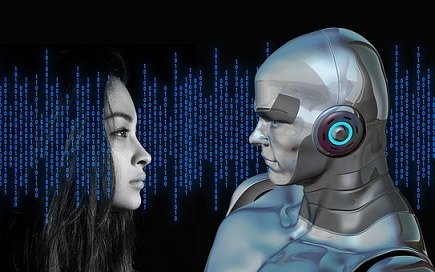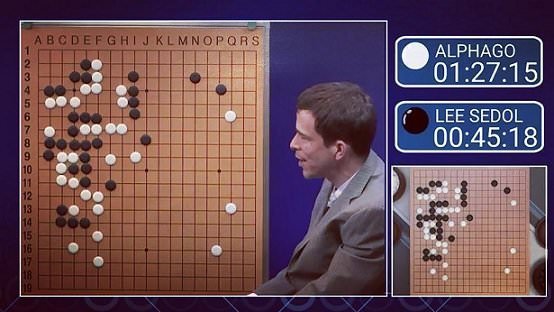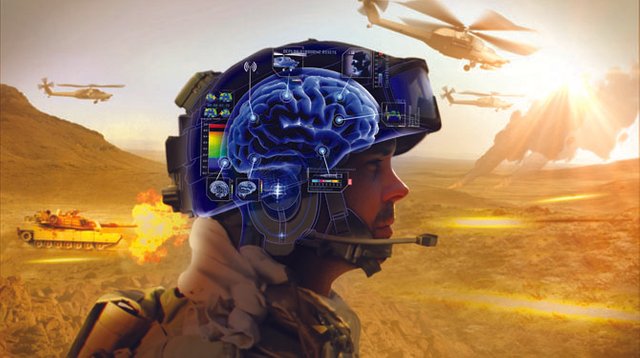ADSactly Technology - Stages and Advances in Artificial Intelligence
Introduction
The term "Artificial Intelligence" (AI) is not entirely new to most of us. As a matter of fact, since the introduction of the term by John McCarthy in 1955, the world has been greeted with massive innovations, upgrades and whatnot. And in our daily lives; and in almost every aspects of our lives; we use AI and AI-related techs - from our offices, to our chatbots, to our smartphone apps, and even recently, AI has been incorporated into the blockchain technology... what a time to live in. But the real question here is "in all these advancements, have we achieved what we could call a true Artificial Intelligence?"

From the introductory part of this post, you would discover that I dropped a question in the last part. To answer that question, we need to re-focus on the idea behind Artificial Intelligence. As the name suggests; Artificial Intelligence is meant to simulate and mimic the human-level of cognition, efferent intelligence, relational intelligence, etc, in machines; but have we attained this yet? I remember many years ago, while I was watching the Terminator movie series, in one of the scenes, terminator wanted to self-destruct himself, and little John Connor embraced him with tears rolling down his cheek. But humorously enough, he didn't understand what tears means, because, clearly he was a machine; which is devoid of consciousness and emotions. And the truth is; humans have been known to be efferent beings, with consciousness and emotions, so why hasn't these been replicated in machines yet? But before we look at this, let's take a review of the advances that have been made in the field of AI, and how it has evolved at every stage.
Stage 1: Artificial Narrow Intelligence
This has been recognized as the basic and first stage of the evolution of Artificial Intelligence. No wonder this has been termed by many as "Reactive machines". The reasons being simple; they are not capable of forming new memories on their own, but are based on a pre-defined (mostly hard-wired) memory. So for every task, they would relate to their database and follow a sequential order to perform the task. Even though this would be considered as the ground state of the AIs, but this was a major breakthrough, because it charted the course for mankind in the advancements of AI technologies we have today.
More so, the limited memory AI can only relate to the present course of action, but cannot initiate one itself - that is the reason behind their "reactive" and not "proactive" nature, because they can only respond/react to actions to perform tasks. Now you might be piqued to know what kind of AI would be classified under the Artificial Narrow Intelligence. Have you ever heard of "AlphaGo"? Okay for those that have not already known, it is an AI designed by Google's DeepMind to play the game of "Go", and that is the only thing it does - to play the game, and cannot multitask. Awesomely enough, it also beat human champions by relating to every of the potential moves in the game of Go. But on a very funny note, the AI was not even aware that "Go" is actually sub-categorized as a class of boardgame according to this source. Well, that is because they are only reactive in nature. People have been thinking that "common sense" is not common in humans, but it is completely devoid in this class of AI. Okay let's look at the next stage and see the advances that were made.
Stage 2: Limited Memory AI
In this stage of AI evolution, one of the major breakthroughs that happened was to leverage on the major weakness of the Reactive Machines (which is the lack of the ability to form new memories) and enhance them. In the Limited Memory AI, there is a pre-defined ability to communicate with a certain database to perform a task, and here, the AI can also make new memories through the combination of algorithms as against the Reactive Machines that are straitjacketed to performing a single and monotonous task/function. Example of this includes your popular chatbot; Siri.
Even though this AI could create entirely new memories, but just like the name suggests, the memory is somewhat very limited and cannot; in anyway; be compared to what the brain capacity of humans can take. So has a true AI been achieved yet? You wanna know the capacity of the human brain? Okay it might interest you to know that your brain has the ability of storing up an excess of 2.5petabytes of data (okay that's a little tip for you). Also, this AI is at the borderline to the "AGI" (Artificial General Intelligence) - which is very much known in our day-to-day lived, which can multitask; like your humanoid robots (e.g: Sophia - which was granted citizenship of Saudi Arabia). Here's a little funny video of Will Smith trying to kiss Sophia the robot, and her response.
Stage X : Artificial Super Intelligence
Okay I named this "stage X" because this particular AI only exists currently in theory, and that is what can be said to be the true definition of AI, because it has been speculated that it would emerge with every of the efferent domains of the human intelligence; like consciousness, emotions, self-awareness, relational thoughts, even way beyond the human level of cognition. Many years ago, a very renowned proponent of Artificial Intelligence (Ian Pearson) made a revelation in this article that AIs would be billions of times smarter than what the ability of the average humans can handle. This type of AI was clearly what he was talking about.

The question is; is this type of AI attainable, and how soon would it be? Okay let's look at our computing world: In the recent past, the processing power of the fastest and most powerful computing systems then would only perform some few CPS (calculations per second), but imagine what is happening now - we have come supercomputing monsters that can perform an excess of 33 quadrillion calculations in just one second like the Tianhe-2. Though the humans brain is way over that processing power; maybe we'll be looking at some quintillion calculations per second. But amazingly, within just few years of technological advancements, we were able to achieve processing power of billions per second, imagine what the world would look like in the next few years - obviously, we would hit the target of quintillion calculations in seconds, and that is when the true AI would be birthed; the Artificial Super Intelligence. But until then, technology would keep advancing.
Conclusion
Since the advent of the first ever Artificial Intelligence, we have witnessed some mind-blowing advances in the field of AI, but the question that has always been kept in the grey zone is if we have actually achieved what could be called a true AI. But one thing I know is; whatever happens, tech always rules.
References
Authored by @samminator
Click on the coin to join our Discord Chat

Witness proposal is here:
Go To Steem Witness Page
In the bottom of the page type: adsactly-witness and press vote.

Use small letters and no "@" sign. Or, click here to vote directly!
Thank you!

very amazing post @adsactly.. Artificial intelligence is a branch of computer science, where human intelligence and thinking power are tried to emulate computers. Artificial intelligence has now become an academic education field where taught how to create computers and software that will show intelligence.
The field of Artificial Intelligence is one that has been experiencing massive evolution and revolution lately. But the truth is; whatever we have seen is just very small compared to what's coming. Technology is still at infancy; and much more is AI. We should all keep an open mind to embrace what is coming.
Tech rules!
Implementing the technique of human intelligence and thinking through artificial means depends on machine-based artificial intelligence. [1] The computer is brought to the Mimics Cognitive unit so that the computer can think like a human. Such as learning and solving problems. Artificial Intelligence (AI) is a machine-made intelligence. In the field of computer science, the AI field defines itself as a study of "intelligent agents": Any device that can understand its environment and take steps that lead to its achievements far beyond achieving some goals. The term "artificial intelligence" is applied when a machine that functions in "cognitive" functions matches the minds of other people, such as "learning to accept" and "problem solving". Andreyar Kaplan and Michael Henelin said in the definition of artificial intelligence, "It is the ability to accurately explain the external information of a system, take education from such information and focus on flexible adaptation using those lessons.
@adsactly Amazing brief description about AI, I always keep update about Artificial Intelligence,
You raise some of the beautiful question, An Artificial Intelligence can only perform the task which is related to mathematical computation, it cannot have consciousness, feelings and cannot know what is the importance of relation.
We know that AI can perform some of the most complicated task which is impossible for a human, but we must be aware some of the situations which we may face about this AI.
If this AI is used by wrong mind then it can result to most destructive events in the history.
So we must restrict the AI to a limited event.
Thank for such post
Can you please include me to your community
We actually achieved Artificial Intelligence long ago. It's why AI is now distinguished from AGI (Artificial General Intelligence), a hypothetical form of machine sentience popularised by science fiction, which is what many people think of when they hear the word "AI".
Great post @Adsactly. Artificial intelligence technology is for sure one of the good reasons why being alive in this time is quite a privilege. I must say that painstaking research is being carried out to equal the features of a human to that of these AI techs, especially in the areas of emotions and adrenaline-laced activities. It may seem impossible but the truth is, no ground- breaking inventions that we are enjoying today was Carried out with the "impossible" word at heart.
Your post is always good. I like your post very well
what a wonderful..... ?
I confess it gives me something of Fear to think about everything that can reach to obtain the technology, every day the artificial intelligence is almost human.
I think like most people, my knowledge of AI comes from the cinematic experience or the internet. From that computer in 2001: a space Odyssey, to the viral video of Will Smith and Sophia. However, almost imperceptibly, AI has been with us for a long time and occupying important spaces in our lives. An example of this can be Siri. This is just one of the systems that, nowadays, can understand what you tell them.
Every day, more and more systems are created that can transcribe human language, reaching hundreds of thousands through interactive voice response systems and mobile applications. Also Biometrics, a technology that can identify, measure and analyze human behavior and the physical aspects of the structure and shape of the body. These are some of the many advances that are being made.
I believe that IT, in an effective way has stopped being a simple fantasy to become a great reality. We would have to see how powerful AI will be and how helpless and exposed human beings will be. Thank you for the interesting text, @samminator and @adsactly for sharing.